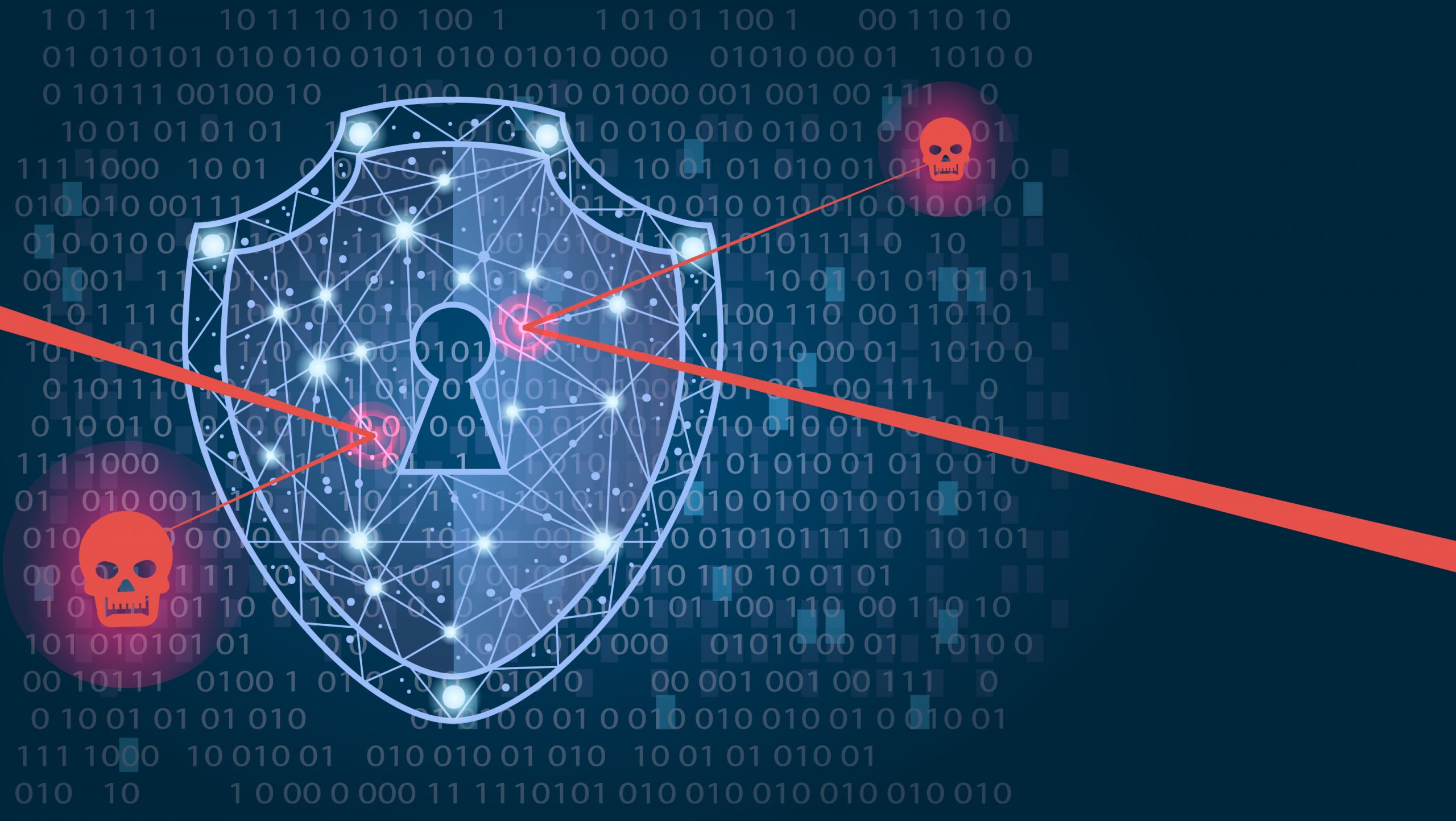Why Is Network Security Important To Organizations And Businesses
Cyber-attack is one of the biggest threats to the success of a business. Whether you own a big organization or a small company, network security protects your data and a disaster recovery plan makes sure that when disaster strikes you can recover!
Network security is also necessary for businesses to be operated following privacy laws. In this post, we’ll explain some reasons why network security is important for your business. But first, let’s understand the basics. your in house or looking for network security services, business network security is a must!
What Is Network Security?
Network security is a set of preventive methods used to protect network systems from unwanted invasion, corruption, manipulation, and other threats. As a result, computers and other devices can function in a protected space.
Network security is a combination of complex anti-hack systems. It integrates special hardware, software, processes, and configurations that protect against invasion. Well-crafted strategies are important to guide specialists on how to properly secure a network.
Types of Network Security
Many types of network security systems have been developed over time to prevent cybercrime. Let’s check out some of them:
-
Access Control
In this system, users who have access to a network are controlled with special measures. Security policies create a restriction on network access, so that only recognized users are allowed.
As a result, unauthorized users or devices are blocked from using the network.
Firewalls are a common type of network security. They are developed to act as a barrier between a network and the web. A set of predefined rules guides firewalls to determine which traffic to block or allow into the network.
-
Antivirus And Anti-Malware Software
Viruses and malware are common types of cyberattacks that can compromise data in your network. Some versions can invade a network and corrupt sensitive data. While other variations form a backdoor that hackers can use to infiltrate your network.
Antivirus software monitors and scans your systems for suspicious activity. While anti-malware detects malware, blocks its activities, and suggests ways to eliminate it.
-
Email Security
Emails can be a tool through which many security threats like scam links, phishing, and malware can infiltrate your network.
An email security software can block incoming suspicious emails. It also works to limit outgoing emails that contain certain forms of data.
-
Web Security
Web security safeguards networks by preventing web-based threats from attacking endpoint devices. Endpoint devices are any hardware that is connected to a network. Smartphones, laptops, and printers are endpoint devices.
A web filter is a type of web security solution. It uses a configured database containing a whitelist and blacklist. The whitelist contains authorized domains that are safe to be used in the network. While the blacklist comprises known malicious domains that can compromise the network.
Web filters block every blacklisted website and prevent users from engaging them.
-
Virtual Private Network (VPN)
A VPN provides a secure connection for an endpoint linked to a network.
It works by encrypting the connection and so masking the network from roaming threats. It can also be used to secure an endpoint browsing the web.
Why Your Business Needs Network Security
1. To Protect Business Data
Data is one of the most crucial things to safeguard from cyber threats. Losing important data due to malware or phishing may lead to major losses for the organization. Small businesses may not recover and eventually fail. Network security prevents losses by safeguarding your business and personal data.
2. To Secure Shared Client Data
It is common for organizations to collect client data for marketing and other purposes. Network security keeps the data safe from harmful invasion and retains the integrity of your business.
3. To Optimize Network Efficiency
A safe network is excellent and efficient due to the lack of malicious software. Network security and a good system improve your network performance by making it run smoothly.
4. To Prevent Ransomware Invasion
Ransomware is one of the most dreadful cybersecurity challenges. They are a form of malware that hackers use to infiltrate your database. Then, they threaten to destroy, release or block your data unless you pay a ransom.
Many organizations have lost millions of dollars in these attacks. With well-designed network security, you can protect your data from a ransomware attack.
5. To Obey Privacy Laws and Regulations
Privacy laws allow certain businesses to run only when they have working network security. This helps to safeguard employee and client data from security breaches.
For instance, financial organizations and private equity firms are regulated by the Securities and Exchange Commission (SEC) and Financial Industry Regulatory Authority (FINRA).
6. To Avoid Identity Theft
Without good network security, cybercriminals can steal your brand identity. By infiltrating your systems, they can use your identity to perpetrate fraudulent activities. To avoid this, make sure to establish working network security for your business.

How To Secure A Business Network
1. Set up a firewall. It is your first line of defense to secure your network.
2. Configure a VPN to encrypt and secure your network connections.
3. Install antimalware software to scan, detect and eliminate viruses and malware.
4. Make sure to regularly update your firmware. Use a security policy that scans for updates so you can quickly shut security holes.
5. Use WPA2 for your business router passwords. It is excellent for securing the Wi-Fi network from unauthorized access.
6. Provide security awareness education for your staff.
7. Don’t forget to backup all your data in a highly secured facility.
8. Create a Disaster Recovery Plan (DRP) to prevent costly damage due to a cyber security threats.
Business Network Security Checklist
As a business owner, keep your network secured with the following checklist:
-
Keep records of all hardware and software connected to your business network.
-
Regularly update software and operating systems with improved security protocols.
-
Make sure to restrict access to your network. If possible, use multifaceted authentication to restrict access.
-
Every device connected to the network should have unique log-in details. Use VPN to secure connection of remote employees.
-
Develop a security awareness plan to educate your employees on security protocols.
-
Use security filters to improve email and web security.
-
Install firewalls and antivirus software to protect endpoint devices.
-
Back up your data and develop a data recovery plan to minimize data loss.
-
Create a proactive plan to eliminate security breaches.
-
Conduct regular vulnerability tests like penetration testing.
Frequently Asked Questions
Why is security so important to organizations?
Security is important to organizations because it helps to protect valuable data. It also reduces the expenses of a business and assures its clients.
What is a network security and why do we need it?
Network security is a set of methods taken to prevent unauthorized access and manipulation of a network. It is important to safeguard data and improve network performance.
What are the advantages of network security?
Advantages of network security include:
- Protecting data,
- Minimizing risks,
- Improving network connection, and
- Preventing cybercrime.
Why an organization should invest in network security?
Network security protects your network from unwanted invaders. Sensitive information is secured and you don’t have to spend unnecessarily.
What are the goals of network security?
The three goals of network security are Confidentiality, Integrity, and Availability. They are also called the three pillars of network security.
Final Thoughts
Network security is important for your business. It combines complex measures that provide security. Network security helps to protect sensitive data, improve network efficiency, and prevent cybercrime.
Set up firewalls, antimalware software, and other security software for your devices to secure your network. Also, take steps to restrict network access, educate your staff and create a data recovery plan. Whether your an in house team looking for outsource business network security services or you are a company that is starting from square one, Computronix Has been building and securing networks for 25 years. Contact us today to make sure your business network is secure!










